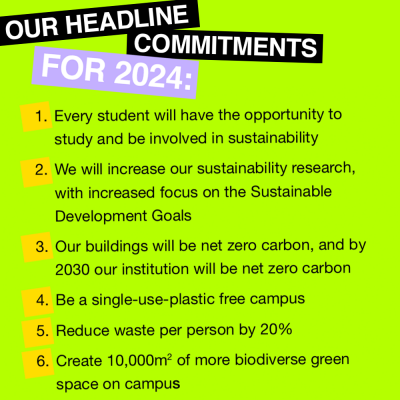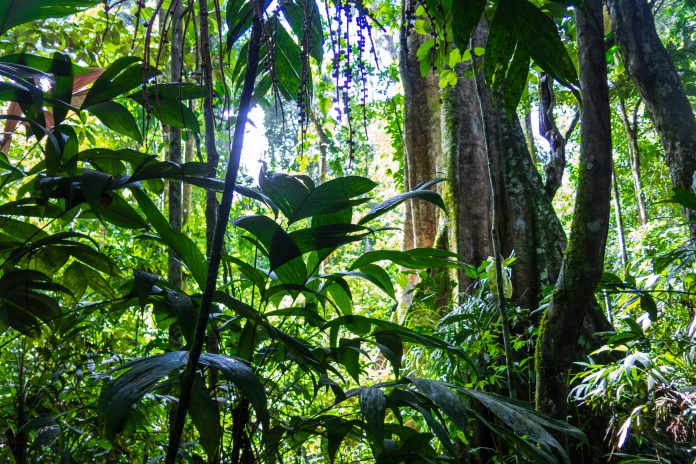Paul Ekins, Professor of Resources and Environmental Policy, University College London, tells us about UCL’s COP26 Campaign ‘Together for Climate Action’
The climate policy-making and business world are awash with targets. Over them all is the Paris Agreement target of keeping the global average temperature increase from climate change by the end of the century to ‘well below 2oC’ and preferably close to 1.5oC. That is widely thought to require ‘net-zero’ emissions by 2050, which has spawned a whole flurry of ‘net-zero’ commitments from governments and businesses. Nearer at hand, there are the Nationally Determined Contribution (NDC) targets, whereby countries commit themselves to emission reductions for 2030, which should of course be consistent with the global ‘net-zero’ target overall.
At present, as shown in the United Nations Environment Programme’s ‘Emission Gap’ reports, the NDC targets are way off track from meeting the 2050 ‘net-zero’ and Paris Agreement goals. And there is much doubt as to whether even these targets will be achieved. Even those countries like the UK and the EU that are in the vanguard of ambitious 2030 commitments are far from an emission trajectory that will allow them to meet these commitments, and the window of opportunity to take the necessary actions to bend the curve onto that trajectory is fast closing. What climate policy making now needs is not more targets, but action. That is why UCL Bartlett Faculty of the Built Environment is calling its COP26 Campaign ‘Together for Climate Action’. The Campaign will run through to the COP26 summit meeting in Glasgow in early November this year.
Those who call for action from others have an obligation to take action themselves. As a leading educational institution, UCL’s main action obligation in relation to the climate crisis is to do research that will generate insights and knowledge as to how the climate crisis can be successfully addressed, teach that knowledge to our students, and share it more widely with others who can use it. That is why the first two of UCL’s sustainability commitments are to do with teaching and research (see Figure 1). But the other four indicate that UCL intends to walk its talk, get to net-zero carbon in its buildings, be free of single-use plastic, reduce waste per person by 20% and increase more biodiverse green space by 10,000 m2, all by 2024, and be ‘net-zero’ in carbon emissions as an institution by 2030. The full range of UCL’s research and action on climate change may be browsed on UCL’s climate change website.
Getting to ‘net-zero’ will require an enormous and sustained societal effort. Greenhouse gases are produced by almost every kind of human activity. Fossil fuels like coal, oil and natural gas, are the major sources of the most important greenhouse gas, carbon dioxide (CO2). Yet the burning of these fuels has propelled economic growth and human prosperity since the industrial revolution. All areas of activity in society and the economy will be affected by the move away from them. There are still many uncertainties as to how ‘net-zero’ will be achieved.
Turning aspiration into achievement
The ‘Together for Climate Action’ Campaign has two main target audiences: the general public, and those policy-makers, business-people and active citizens who are keen to become more aware of what policies could turn the climate targets from vague aspirations into actual achievements. The hope is that over the course of the Campaign, some in the first group will become part of the second.

For the first group the Campaign is producing a whole series of Explainers. This responds to the top priority principle that emerged from the Citizens’ Climate Assembly, as expressed in their final report in September 2020: Informing and educating everyone. The Explainers seek to express in plain English the key issues about COP26 and getting to ‘net-zero’ greenhouse gas (GHG) emissions by 2050, to which the UK Government is now statutorily committed. Then there are Policy Briefs, which go into some of the issues more deeply, and put forward ideas as to how these issues can be effectively addressed. Finally, there are blogs, one-off short opinion pieces that pick up topical themes related to the whole business of reducing carbon emissions and reducing the extent of climate change. The full range of outputs can be viewed online.
The Campaign has a loose structure with each month to COP26 in November having a different broad theme. June will focus on the required transition in the energy system, while July and August will explore the changes that will be required in the economy and industry, in transport and buildings, and in agriculture, in terms of the food we eat and how it is produced. September will pan out onto what other countries are doing, especially the big emitters – China, the US and the EU – and what they need to. October’s theme is the crucial role of government, at different levels, in driving emissions down, before the world’s governments finally meet in November to respond to citizens’ growing demands for urgent climate action.
The Bartlett has been working on issues related to energy and carbon emissions reduction for many years. Our research covers the full range of human uses of energy and resources, the impacts of these activities on the natural environment, and what policy can do to reduce these impacts. The purpose of our Campaign for Net-Zero is to share the results of our research with as many people as we can in the run-up to COP26, to draw people into the debate, and inspire action. We want to raise public awareness of what is likely to be required, to help citizens, consumers, businesses and policy-makers understand and prepare for the huge changes that will be coming down the track if our Government takes its commitment to net-zero seriously. We hope that you will find our Campaign outputs both useful and inspirational. Want to hear more? Sign-up to our campaign mailing list to get ideas, info and events delivered to your inbox.
*Please note: This is a commercial profile
© 2019. This work is licensed under CC-BY-NC-ND.











